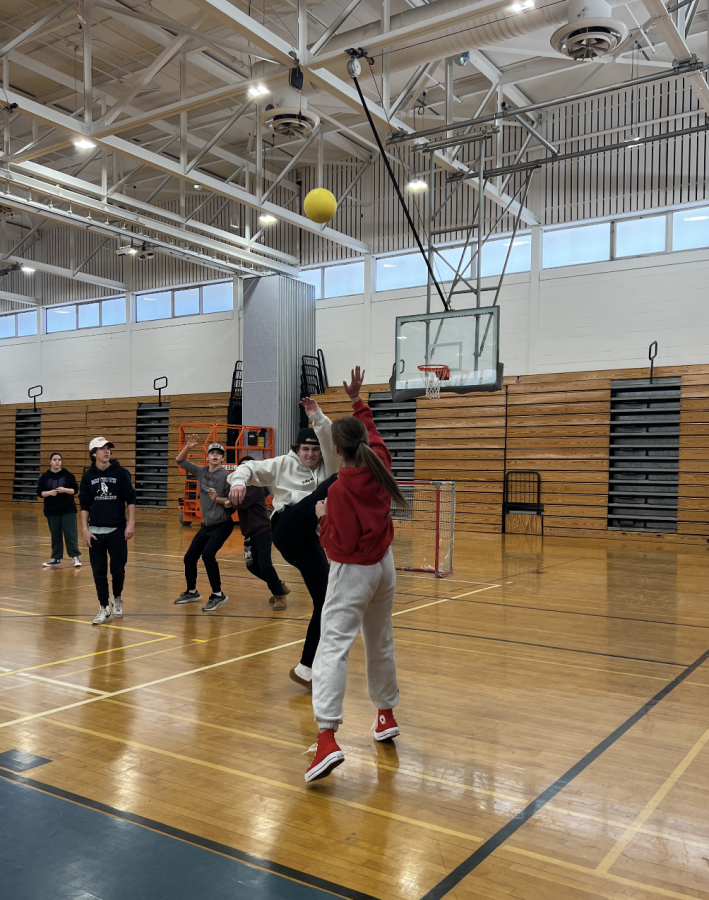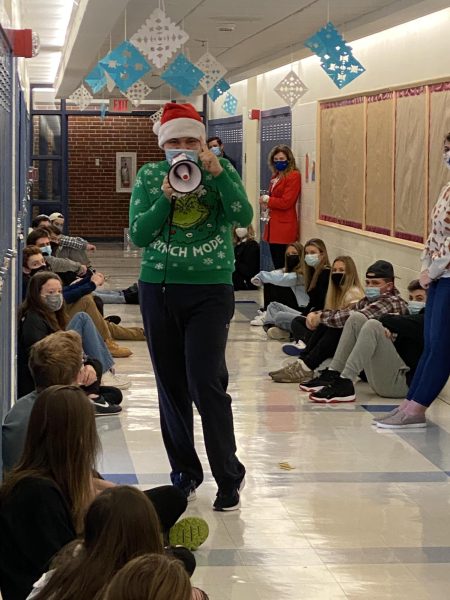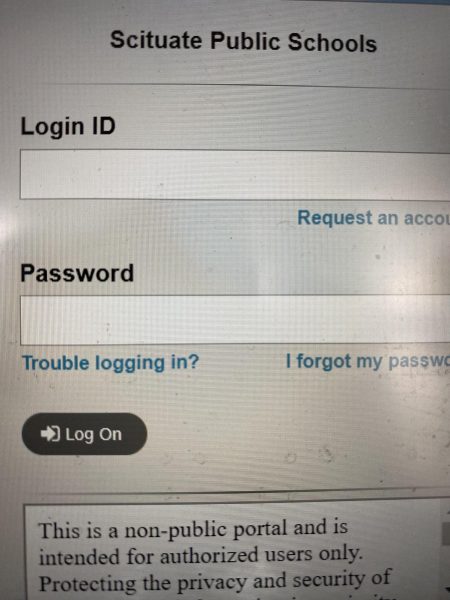Can Physical Education at SHS be Reformed?
February 24, 2023
According to the 2022-23 Scituate High School Program of Studies, each year, “students are required to successfully complete one-quarter of physical education.” Members of the freshman and sophomore classes enroll is a mandatory physical education course, and juniors and seniors can select from a variety of different physical education courses. During the academic year, a quarter equates to approximately 30 contact hours, which ensures students are getting an adequate amount of physical activity for this time period.
The current SHS physical education program meets the required state and district standards, but recently, we raised a question: Is it possible to reform the structure of the physical education courses?
SHS physical education teacher Kathleen McCarthy strongly believes physical education at SHS is “much more than just fun and games.” McCarthy explained: “It provides lessons about cooperation, problem solving, team work, risk taking, and leadership.” McCarthy said pairing physical education with health class is working well at the high school. She said physical education classes have been functioning well for years, giving students a mental break from other classes, and providing health benefits for all students, regardless of their respective sports.
Students at Scituate High School have varying opinions, which were captured in a recent survey: 100% of student-athletes who took the survey believed physical education classes should be optional. Many students would rather utilize the block as a study to catch up on work that piles up during their athletic seasons.
Additionally, members of a current SHS business class were surveyed and asked the same question. Of those who answered, 9 believe physical education class should be optional and 3 believe it shouldn’t. One of those 3 students, sophomore Maddie Quirk, said, “It allows bonding exercises and ensures teamwork with students of different grades. It is good to have a break from school work and exercise during the school day rather than just having a study.” Despite some students wanting physical education to be optional, others enjoy a break during the school day.
At Scituate High School, there are many opinions regarding physical education and whether or not student-athletes should be required to attend. Some students enjoy physical education while others believe there are other ways to attain the credits necessary to fulfill the graduation requirement.
Furthering this idea, SPS Director of Health & Wellness, SHS department chair Greg Ranieri, explained the information and state regulations around the structure of physical education classes. Being involved in the planning and improvement of wellness programs in Scituate for over 20 years, Ranieri has always been interested in forming a creative change in order to best meet requirements as well as student needs. Awarded the 2010 Massachusetts Wellness Coordinator of the year, Ranieri has implemented some of the best practice protocols here in Scituate.
Ranieri explained the case-by-case steps that have occurred in the past when students needed individualized scheduling or alternative experiences to earn physical education credits. According to Ranieri, there is a “clear and high standard” around attending physical education classes. There is a very specific student that fits the profile of fulfilling requirements in an alternate way. This student would need to prove that they couldn’t fulfill academic requirements and must fill out an outside-of-school physical education requirement request form to replicate learning hours in a different way. These are very specific and limited cases, but there are possible ways to rework what a physical education course could look like.
Ranieri feels there is viability to a “zero-hour PE class.” He noted the possible benefits of having a PE class before school. Rather than having a block during the school day, students could possibly fulfill physical education credits before the school day if PE class is getting in the way of their academic interests. By starting the day with movement and physical exercises, students “will be more alert, focused, and a better student during the day.”
Essentially, Ranieri noted that daily movement is extremely beneficial to students, and physical education should not be an opt-out situation. He said that “physical education and physical activity are not interchangeable,” and the practices occurring at SHS are fair and reasonable while fitting into the national wellness standards. (In Massachusetts, as part of MA General Law, Chapter 71, Section 3, “Physical education shall be taught as a required subject in all grades for all students in the public schools for the purpose of promoting the physical well-being of such students.”)
With varying opinions on the topic of physical education, it has prevailed that there are positives and negatives to all alternatives. Physical education at SHS has proven to be successful in many areas, yet there are areas for improvement. The debate regarding reforming physical education requirements involves many opinions and perspectives, so what do you think?










